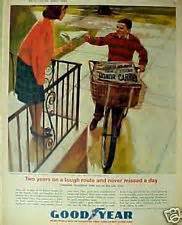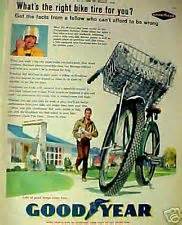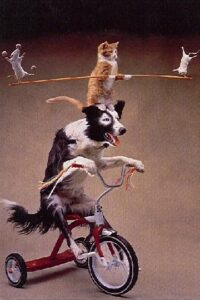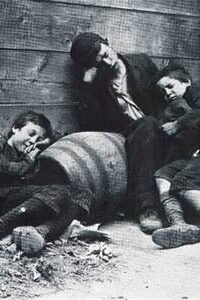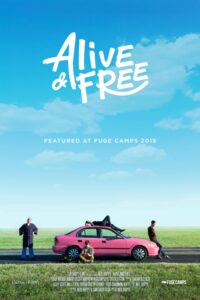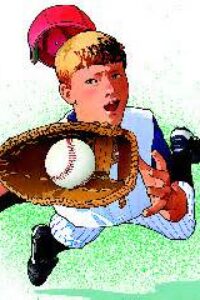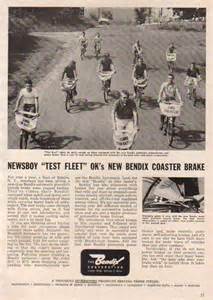 “The world never comes at you all at once,” John O’Donohue states in his book “Beauty, The Invisible Embrace.” If it did we would combust. Most moments in life barely register; others leave an impression that remains for a lifetime. I had two seminal experiences that helped me shed the skin of childhood. One evolved over a period of time bringing with it a gradual awareness of a wider world beyond the borders of my rather sheltered existence. The other was a revelation into my character that came like a lightning bolt. I became a paperboy at a young age, and around the same time, I tried out for a Little League baseball team. A few years ago I decided to write a coming-of-age novel based on some of my early experiences growing up in the 1960s. The novel is entitled “My Better Angel.” It has yet to be published due, in part, to my own inertia. So just for the fun of it, I’ve decided to post the first two chapters of the novel on my website. The first chapter is entitled “Staying Power.” I will post the second chapter in December. This is fiction. I was a paperboy, and I did tryout for Little League. Those are facts beyond repute. The rest I will leave for the reader’s imagination. It is simply written to delight.
“The world never comes at you all at once,” John O’Donohue states in his book “Beauty, The Invisible Embrace.” If it did we would combust. Most moments in life barely register; others leave an impression that remains for a lifetime. I had two seminal experiences that helped me shed the skin of childhood. One evolved over a period of time bringing with it a gradual awareness of a wider world beyond the borders of my rather sheltered existence. The other was a revelation into my character that came like a lightning bolt. I became a paperboy at a young age, and around the same time, I tried out for a Little League baseball team. A few years ago I decided to write a coming-of-age novel based on some of my early experiences growing up in the 1960s. The novel is entitled “My Better Angel.” It has yet to be published due, in part, to my own inertia. So just for the fun of it, I’ve decided to post the first two chapters of the novel on my website. The first chapter is entitled “Staying Power.” I will post the second chapter in December. This is fiction. I was a paperboy, and I did tryout for Little League. Those are facts beyond repute. The rest I will leave for the reader’s imagination. It is simply written to delight.
Chapter 1
Staying Power
“So you threw the papers for one of the boys while he was on vacation,” Aaron Rubenstein said. He snorted a staccato sniff of early morning air up his bulbous nose sounding like baseball cards’ flapping against bicycle spokes. I detected a hint of condescension.
“Threw for a whole week,” I said, unable to hold back a little crow.
“Threw for a whole week,” Aaron said glancing heavenward as though the statement was worthy of contemplation.
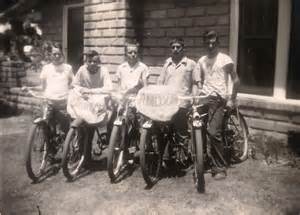 Aaron was a paperboy for our two daily newspapers in Davis City, Tennessee: the morning Sentinel and evening Monitor. I had had a whole week of experience, enough, I thought, to qualify me for a route of my own, but as Aaron stared into the pre-dawn sky, his silence allowed for doubts to creep into my mind. Aaron had impressed the newspaper’s delivery managers and they promoted him to a larger route after a year of delivering the papers for the route I hoped, with his blessing, would assume. I had passed the interview with the managers. The last hurdle was the approval of Aaron Rubenstein. We had met before dawn at the drop-off site where the route manager left designated bundles of papers for the paperboys to pick up before heading out on their neighborhood routes. Even though Aaron and I would have two different routes, we would gather our paper bundles at the same drop-off site beneath a giant hickory tree.
Aaron was a paperboy for our two daily newspapers in Davis City, Tennessee: the morning Sentinel and evening Monitor. I had had a whole week of experience, enough, I thought, to qualify me for a route of my own, but as Aaron stared into the pre-dawn sky, his silence allowed for doubts to creep into my mind. Aaron had impressed the newspaper’s delivery managers and they promoted him to a larger route after a year of delivering the papers for the route I hoped, with his blessing, would assume. I had passed the interview with the managers. The last hurdle was the approval of Aaron Rubenstein. We had met before dawn at the drop-off site where the route manager left designated bundles of papers for the paperboys to pick up before heading out on their neighborhood routes. Even though Aaron and I would have two different routes, we would gather our paper bundles at the same drop-off site beneath a giant hickory tree.
“Throwing for a week of four‑thirty mornings and three‑thirty afternoons is like slipping off a wet rock, nothing to it,” he said redirecting his eyes on me.
Condescension confirmed. Shamed, I focused on wrapping a newspaper into the shape of a tube, securing it with a double twist of a red rubber band, and tossing it into his oversized, wire basket.
“It’s the long haul that counts. You got staying power?”
“I think so,” I said. A friend had asked me to deliver his route during his spring break vacation, and within that week, I grew to love the process of supplying the neighborhoods with its craving for the printed word. In seven days my imagination had been cracked open by headlines, pictures, and stories exposing me to human cruelties and ecstasies of everyday life drawing me into their plots. Sometimes headlines created more compelling images than the article: ENDING ONE NIGHTMARE STARTS NEXT; WOMAN BLAZES OWN TRAIL INTO CELL AT CITY JAIL; SCHOOL SLASHES PERSONNEL; GUNSHOTS AND SUICIDE POSTPONES WEDDING. The experience built a near heroic sense of achievement. I was thirteen and had touched the hem of the world, but what was this staying power?
“Staying power is when it’s fifteen degrees and there’s a foot of snow, or a thunderstorm breaks out and you’ve got to face the elements and give the world its news. That’s staying power.”
He paused to rub his hand across the flat newspaper on the top of the stack as though stroking a favorite pet, his fingertips glistening from the inky, newsprint sheen.
“And what about after school when it’s time to make the afternoon run and some cute young thing flashes a smile and begs you to go with her to the soda shop. Do you have the staying power to walk away from that?”
Aaron folded the paper and waved it under my nose.
“What would happen to society if this wasn’t delivered to its doorstep? Chaos. Subversion. Anarchy.”
His wide face pinched into a glare shifting its focus from me to the world at large, and I saw his vision of destruction played out across his aggie eyes. After a few seconds of Aaron imagining the apocalypse, he folded the paper into his chest as though protecting an icon from mob rule. Was this clairvoyance the result of delivering the news? I had seen the transformative powers within me, in a week’s time, the experience of delivering newspapers had moved my horizons, and drove me to pursue employment as a paperboy with my own route. Is this what I would become after employment for one year…a prophet with similar visions?
In silence, we finished folding the papers securing each one with a rubber band, dropping the paper cylinders into our baskets, and rode our bicycles to the start of the route. The moment took on the feeling of an induction into a new religion.
“The route is a mile from the drop‑off point,” he said. “Easy ride even with a full load of papers.”
“I can do it,” I said, my first attempt to dispel any doubts as to my staying power.
“Your first street is Oriole.”
The houses were undersized and plain with manicured, square yards. Oriole took a ninety-degree turn onto Hardwick Road. There were only two houses on this straight shot of blacktop ending at a fire station built to service a new shopping center. The road’s namesake owned acres of fields between the second house and the fire station. Written in calligraphy on the jumbo-size mailbox was the words “Glimpse of Glory,” but a forest of trees prevented a glimpse. Aaron led me through the large ironed entrance, and we stopped halfway up the quarter mile driveway and gawked at three stories of white mansion with four monstrous columns, an architectural tableau concealing ancient secrets with no invitation to search them out.
“Never seen anyone in that house,” Aaron said.
“You don’t collect from them?” I asked.
“Just throw the papers and forget about them. You’ll get credit,” he said, his voice petering to a whisper in the presence of this mystic real estate imposing in its solitude.
“You believe in the afterlife?” he asked, and I nodded. “Live right and maybe you’ll get a key to one of these.”
From the size and scope of the Hardwick mansion and surrounding property, I determined it would require several lifetimes of right living were I to take possession of such a prize.
“You don’t have to be a part of this world when you’re this rich,” he said. “This rich gets a street named after you, and this rich ain’t got by slinging papers.”
I was relieved when we rode out of the open gate. Extended viewing of this housing prototype of the New Jerusalem was discouraging.
Less than a hundred yards from the entrance to the mansion Lone Oak Pike intersected with Hardwick. If Lone Oak had crossed Hardwick, the road would have run right up to the front door of a hovel propped up on stacks of flat stone pilings. The discolored paint on the asbestos tiled walls was streaked with mildew, broken windows were taped over with plastic, and a set of tire tracks cut through the yard that led from where Lone Oak ended—a phenomenon made more uncanny by the driveway a good ten feet to the right of the house—and stopped in front of a crumbling front porch.
“How come this shack is so close to the Hardwick mansion?” I asked.
“Hardwick’s hired help lives there,” he said.
This shanty was the model for all bankrupt souls expelled from the Heavenly City.
“A half mile down Hardwick there’s a fire station,” Aaron continued while guiding us onto Lone Oak. “Long ride for one delivery, but it pays off. You smile, they tip.”
Lone Oak was a long stretch of road with three streets, Shackleford, Battlefield, and Cathedral Court, connecting to it. Crest Point was the last street on the route, a long steep grade ending back onto Shackleford. After the Hardwick mansion, all the other houses did not cause my head to turn or inspire fantasies of untouchable residents, given to rare sightings. From the exteriors, the homes were inviting shelters; the neighborhood itself seemed poised to welcome me.
I watched Aaron toss the papers into the customer’s driveways as we rode and the peculiar names of the streets created whimsical images: Oriole, a red‑winged blackbird singing its claim on the long block; Hardwick Road, reclusive millionaires floating in clouds of glory; Lone Oak, a single oak tree in a huge field; Shackleford, miles of linked chains; Battlefield, land concealing a sea of blood just below the surface; Cathedral Court, one of God’s earthly abodes should he get caught after dark; Crest Point, a long paved descent into an immense dream, a dream inviting me to enter.
“Customer pays fifty‑five cents a week for either paper by itself,” Aaron said. We parked our bikes back under the large hickory tree where we had met. “If a customer takes morning and evening, it’s a dollar ten. They take one and a Sunday, it’s seventy‑five cents. All three, it is a dollar twenty‑five. You collect from the customers each week. Every Saturday between ten and twelve you meet the route manager in front of Polk Elementary and pay for your papers. I averaged twenty‑five dollars a week above the cost of the papers. Expand your customer base, you can do better.”
His eyes began a critical examination of my Schwinn bike leaning against the hickory tree with the biggest wire basket I could find attached to the front handlebars.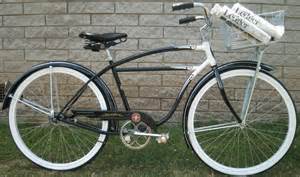
“Looks like you got a good bike,” he said, and I took his comment as a positive appraisal of my staying power. He crossed his arms and put a hand over the bottom half of his face locking his head in place, then cut his eyes at me for a final sizing up.
“Man shall not live on bread alone, but by every word that proceeds from the newspaper,” he said through spread fingers. Religion and journalism had been joined. A new faith brewed. He released his chin and his head jerked from side to side.
“You’ll throw papers with me all week, then I’ll take you collecting and you’ll meet the customers,” he said. “I think they’ll like you.”
I swung my bike around in the direction of home pleased that bike and boy received such encouraging words from a professional. The master had accepted the disciple. He pulled the last newspaper out of his basket and offered it to me like it was a sacred gift.
“Take the Sentinel. A lot’s happened today anno domini, nineteen sixty-three.”
I threw the paper into my basket and rode away believing there was nothing I couldn’t do and nothing would be denied me.

